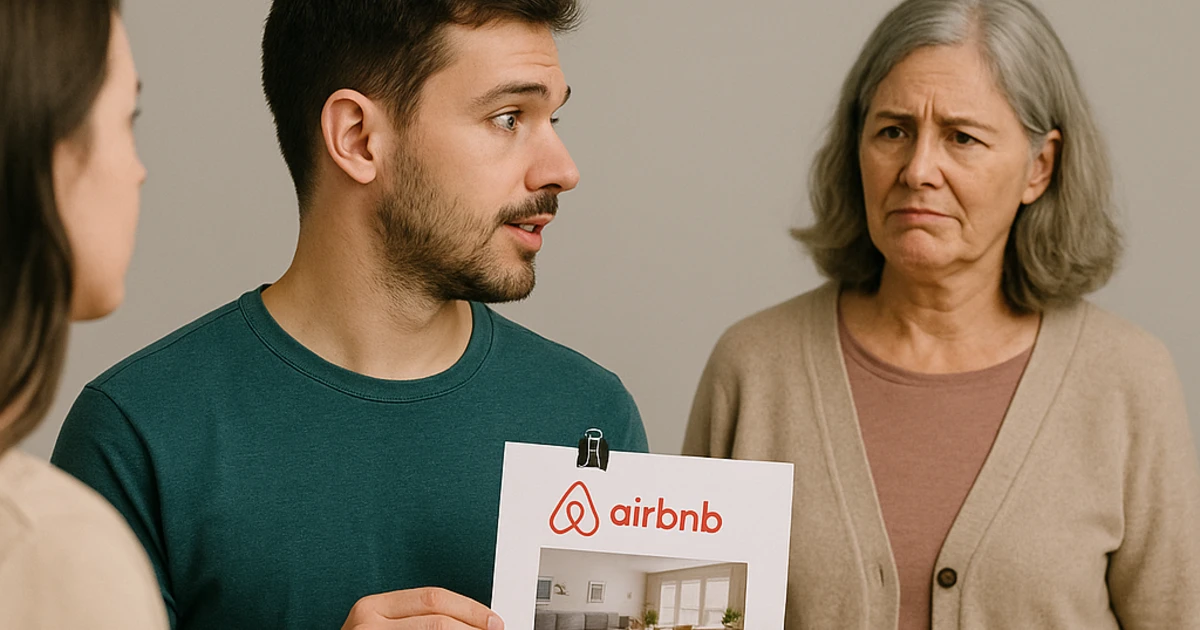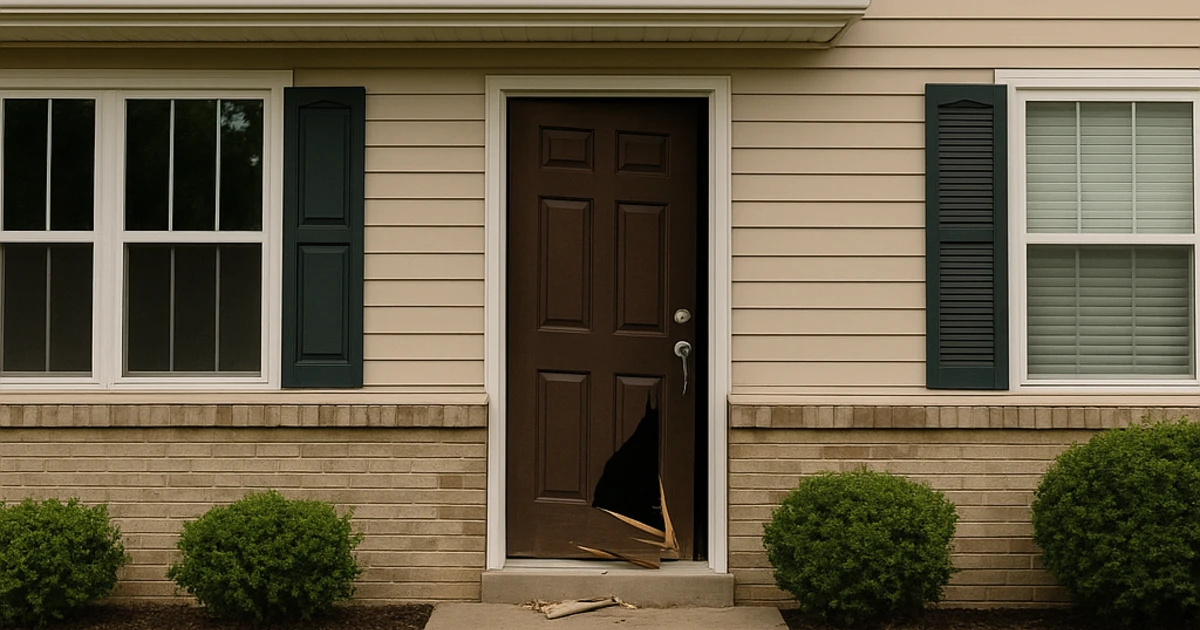Airbnb is one of the most popular platforms for short-term rentals, but if you’re a landlord or property manager considering hosting, the first question you’re likely to ask is: what are Airbnb fees, and how much will they take out of each booking?
Airbnb fees are the charges deducted from a host’s payout when a guest books a stay. These fees can vary depending on location, the type of listing, and whether you use additional services. Understanding how Airbnb host fees work is critical if you’re calculating cash flow for your rental property, or comparing platforms like Vrbo and Booking.com.
How much does Airbnb charge hosts?
The most common Airbnb host fee is 3% of the booking subtotal. This fee is applied to the nightly rate plus any cleaning fee or additional guest fees that you set. Taxes are excluded.
For example:
- Nightly rate: $200
- Cleaning fee: $50
- Subtotal: $250
- Airbnb host fee (3%): $7.50
In this case, your payout would be $242.50.
However, not every host pays only 3%. Airbnb’s fee structure has multiple variations depending on the type of listing, location, and even the host’s account setup. The two most common models are:
Host-only fee model (14–16%)
In this structure, the entire Airbnb service fee is paid by the host, not the guest. The fee typically ranges from 14% to 16% of the booking subtotal. Guests see a “no service fee” booking experience, which often makes the price more attractive on the traveler’s side.
This model is common in:
- Certain countries where consumer protection laws discourage guest fees (most countries outside of the U.S., Canada, Mexico, the Bahamas, Argentina, Taiwan, and Uruguay)
- Professional property managers listing multiple units
- Hotel-style accommodations that use Airbnb as one of many distribution channels
The upside is that your listing can appear more competitive to guests, since they won’t see an added service charge. The downside, of course, is that the host’s payout is reduced more significantly.
Split fee model (standard)
This is the default structure for most Airbnb hosts. The host pays around 3% of the booking subtotal, while the guest pays a separate service fee that can be up to 14%.
For example:
- If the nightly subtotal is $500, the host pays 3% ($15).
- The guest may see an additional service fee of $50–$70 (10–14%) on top of the $500 subtotal.
The split fee model is more transparent to hosts because you’re only losing a small cut of your payout. However, higher guest service fees can sometimes discourage bookings, especially on price-sensitive stays where travelers are comparing options across multiple platforms.
Other variations
- Airbnb Plus and Luxe: Premium listings may be subject to different or higher fee percentages.
- Airbnb experiences: Instead of accommodations, if you’re offering activities, the host service fee is around 20%.
- Longer stays: In some cases, Airbnb reduces the guest service fee for stays of 28 nights or more, but the host fee remains the same.
Airbnb host fees in detail
Airbnb host fees cover the cost of operating the platform, including customer support, payment processing, and marketing to attract travelers. While 3% may seem low, the guest service fees on top of it mean that Airbnb earns significantly from each booking.
Situations where host fees are higher
- Airbnb Plus listings: These premium, design-vetted properties may have higher host fees.
- Hosts with strict cancellation policies: Airbnb may charge more in these cases, since stricter policies can affect booking rates.
- Airbnb experiences: If you offer experiences instead of lodging, the host fee can be closer to 20%.
Airbnb fees for host compared to other platforms
Airbnb fees for host payouts are generally lower than some competitors but higher than others. Understanding how Airbnb stacks up against other platforms can help landlords decide which channel best supports their rental strategy.
Vrbo
Vrbo typically charges 8% per booking if you choose the pay-per-booking model. This percentage includes a 5% commission plus a 3% payment processing fee. While Vrbo also offers an annual subscription model, many landlords prefer the per-booking option because it requires less upfront investment.
Vrbo tends to attract families and longer-term vacationers, which can result in higher average booking values. However, its fee structure means you’ll generally pay more than Airbnb’s 3% host fee, though less than some of Booking.com’s commission rates.
Booking.com
Booking.com operates more like a hotel distribution channel than a peer-to-peer platform. Commission rates typically range from 10% to 20%, depending on the region and property type.
The platform provides massive exposure, especially for urban properties, but the higher fees eat into landlord profits. Unlike Airbnb, Booking.com doesn’t charge guests a service fee, so all the costs are absorbed by the host. That can make your listing more attractive to travelers, but significantly reduces your payout.
Direct booking sites
Some landlords choose to create their own direct booking website to avoid platform fees altogether. On the surface, this looks like the cheapest option—but it comes with major trade-offs:
- You’re responsible for marketing and SEO to drive traffic to your site.
- You must manage payment processing, including fraud prevention and chargebacks.
- You assume full responsibility for liability, guest disputes, and compliance with local laws.
Direct booking sites can be cost-effective for large property managers with existing demand, but for individual landlords or smaller operators, the costs and risks often outweigh the savings.
Why many landlords still choose Airbnb
For many landlords, Airbnb’s simplicity and built-in guest demand make its fees worthwhile. The platform offers:
- Instant access to millions of travelers searching specifically for short term rentals.
- Streamlined payment processing with minimal administrative work.
- Guest screening and support, reducing some of the liability of self-managed bookings.
Still, if you’re comparing options, it’s important to calculate net income after fees, insurance, and turnover costs. A property that looks more profitable on Vrbo or Booking.com may ultimately perform better on Airbnb once you factor in guest demand, booking frequency, and overall ROI.
Read more: VRBO host cancellation policy explained: Why owners are furious
Airbnb fees host considerations for landlords
If you’re renting out a single-family home, townhome, or apartment building, Airbnb fees can affect your overall profitability. Here are factors to consider:
- Cleaning and turnover costs: Airbnb guests expect hotel-like cleanliness, so professional cleaning may be necessary after each stay.
- Local taxes: Many jurisdictions now require Airbnb to collect and remit occupancy taxes, but you may still be responsible for reporting.
- Insurance coverage: Airbnb provides its AirCover program, but it doesn’t replace the need for comprehensive short term rental insurance.
- HOA or city restrictions: Some areas restrict hosting Airbnb, which could affect whether you can legally rent on the platform.
Regional and global differences
Airbnb fees can differ depending on where your rental is located:
- United States: Most hosts pay the standard 3% fee, with guests covering a separate service fee.
- Europe: In many markets, Airbnb is shifting hosts to the host-only fee model of 14–16%.
- Asia-Pacific: Countries like Japan have stricter regulations, and fees can sometimes be bundled with compliance costs.
For landlords managing multiple properties across states or countries, it’s worth tracking which fee model applies in each region.
Maximizing profitability despite Airbnb fees
Airbnb host fees are unavoidable, but landlords can take steps to optimize earnings:
- Set competitive but profitable rates: Use Airbnb’s smart pricing as a guide, but don’t undercut your own margins.
- Charge a cleaning fee: This fee isn’t affected by Airbnb’s percentage cut when passed directly to guests.
- Encourage longer stays: Fewer turnovers mean lower costs per booking, and guests save on fees spread over multiple nights.
- Track your expenses: Combine Airbnb payouts with your landlord insurance and maintenance costs to assess true ROI.
Final thoughts
So, how much does Airbnb charge hosts? The short answer is usually 3% of your booking subtotal, but depending on your property type, location, and fee model, it could be as high as 16% or even more.
For landlords, Airbnb remains one of the most accessible platforms for short term rentals, but you need to factor Airbnb host fees into your rental income calculations. Whether you’re listing a downtown apartment or a vacation pool home, the fees directly impact your bottom line.
By understanding the different fee structures and comparing them with your expenses, you’ll be better prepared to decide if Airbnb is the right platform for your property.






.png)
.jpg)
.jpg)


.png)